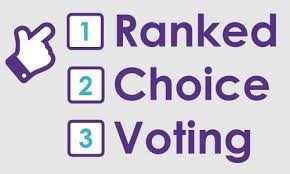
Local supporters of Ranked Choice Voting – aka Instant Runoff Voting (IRV) – are alarmed by what would seem to be two simultaneous threats to the process, both scheduled for action on Tuesday.
1. The Memphis City Council, which voted 11-0 in December to establish a referendum on the November ballot to repeal IRV, has scheduled a supplementary discussion on the matter during a 2 p.m. executive committee session on Tuesday.
The December vote was in effect to give Memphis voters an opportunity to rethink and offset their positive vote in a 2008 referendum to authorize IRV, a process which would allow the selection of a winner in a race in which no candidate had attained a majority. Voters would be asked to rank their candidate choices in order of preference in order to facilitate a resampling of votes that would obviate the need for an expensive and likely ill-attended runoff election.
Interestingly, the process — used in several elections elsewhere in the nation — is also akin to the ranking process used by members of the Motion Picture Academy to select winners in Academy Awards categories.
The Election Commission has scheduled a trial of the process in the city election of 2019. Should the anti-RCV referendum prevail in November, that trial would be canceled.
(2) Also on Tuesday, in what could be a more direct challenge to RCV, the state Senate State and Local Government committee in Nashville is, according to its published agenda, scheduled to consider SB 2271, which, in the language of the bill summary, would “prohibit….a county or municipality from using instant runoff voting for purposes of conducting a primary, general, or special election.”
The bill is sponsored by state Senator Ken Yager (R-Kingston), chairman of the Senate State and Local Government Committee, and is a companion bill to HB 638, sponsored by state Rep. Mark White (R-Memphis), which was introduced in the 2017 legislative session.
When local RCV supporter Aaron Fowles first learned of the legislation, he inquired of the Ingram Group, an organization which is a registered agent of the City of Memphis for lobbying in Nashville, as to the origins of the bill. Fowles said a member of the firm confirmed that Ingram had been commissioned by the City Council to lobby on behalf of the anti-RCV bill. (The lobbyist, Sam Reed, also confirmed this fact to the Flyer.)
Fowles said he was called the next day by Allan Wade, counsel for the City Council. Fowles summarized that conversation in a memorandum which he later circulated at large. Among the excerpts:
“He [Wade] told me that he understood I’d called the council’s lobbyist and that if I had questions I should direct them to him and not speak with the lobbyists, whom he called employees. I answered simply that I could call whomever I chose, to which he responded that I could kiss his ass….[H]e suggested that my interfering with city business might be considered a ‘tort’ and that he was putting me ‘on notice.’
Fowles said he regarded the conversation with Wade as evidence that the Council, not content with trying to nullify RCV via referendum, was “now directing taxpayer dollars to get it defeated and intimidating citizens to defend that expenditure. Furthermore, the council is working to subvert a referendum that is already in progress.”
Said Fowles: “An oft-repeated refrain during the initial IRV debate was that the city council was giving the voters a second chance to state whether or not they want IRV in local elections. With the employment of these lobbyists the city council is working to actively take that chance away.”
Fowles also noted an additional complication in the fact of a second November referendum authorized by the Council, one that would prohibit all runoff elections of any kind whatsoever.